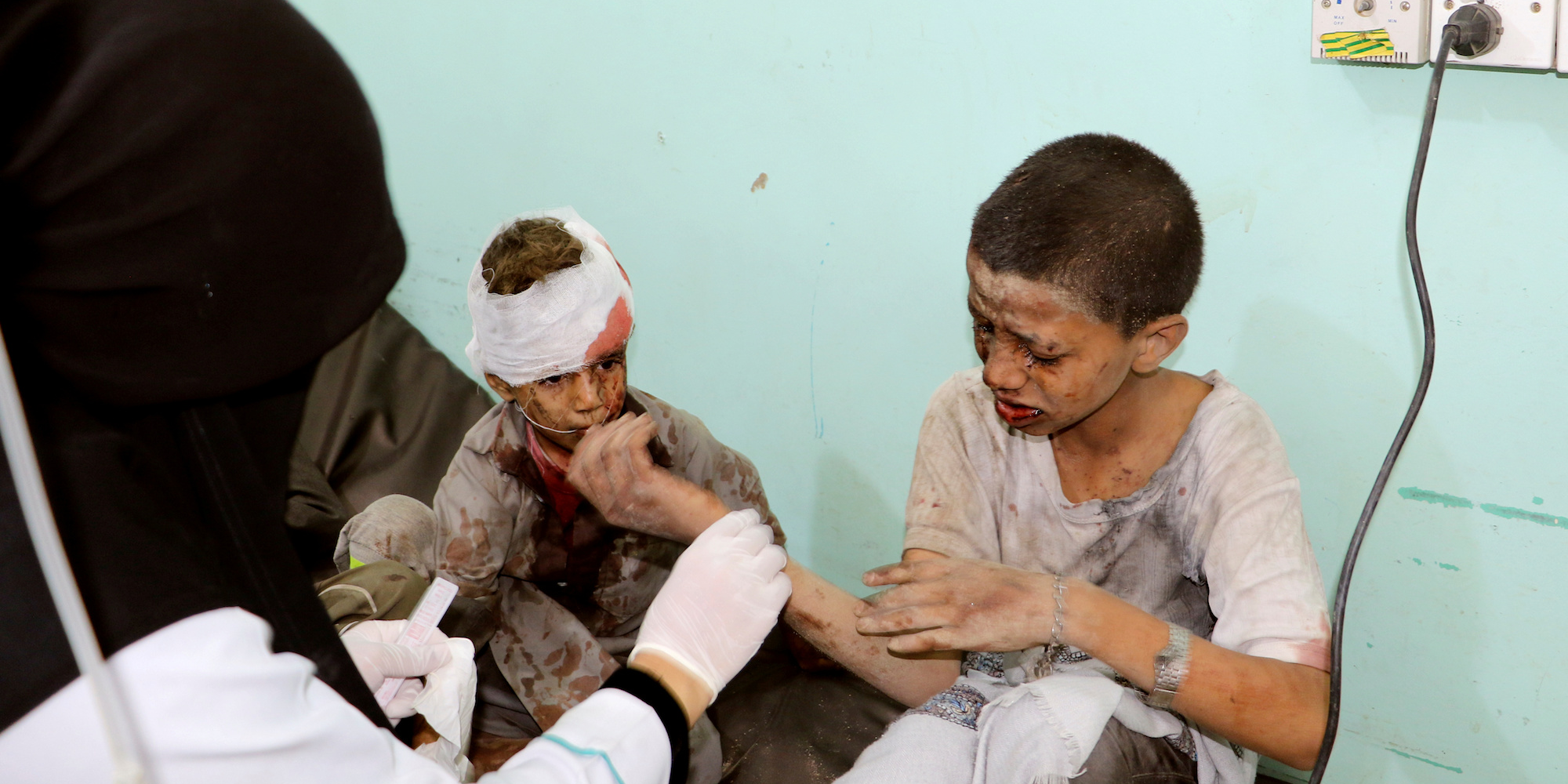- Democratic Sen. Chris Murphy on August 9 slammed the US for its involvement in the bloody Yemen conflict after a Saudi-led coalition airstrike hit a school bus and killed dozens.
- At least 43 were killed in the airstrike, and 63 more were wounded.
- Many of the victims were children, according to reports.
Democratic Sen. Chris Murphy on August 9 slammed the US for its involvement in the bloody Yemen conflict after a Saudi-led coalition airstrike hit a school bus and killed dozens in the northern part of the country.
At least 43 were killed in the airstrike and 63 more were wounded, CNN reported. Many of the victims are believed to be under the age of 10 and were on their way to summer camps, according to the reports.
The Saudi-led coalition called it a “legitimate military operation.”
Murphy, who sits on the Senate Committe on Foreign Relations, highlighted US involvement in the conflict.
"US bombs. US targeting. US mid air support. And we just bombed a SCHOOL BUS. The Saudi/UAE/US bombing campaign is getting more reckless, killing more civilians, and strengthening terrorists inside Yemen," he tweeted.
"We need to end this - NOW," the Connecticut senator added.
Following an attack this morning on a bus driving children in Dahyan Market, northern Sa’ada, @ICRC_yemen- supported hospital has received dozens of dead and wounded. Under international humanitarian law, civilians must be protected during conflict. pic.twitter.com/x39NVB8G4p
— ICRC Yemen (@ICRC_ye) August 9, 2018
The US has provided material and logistical support to Saudi Arabia in its fight against the Iran-backed Houthi rebels in Yemen, selling billions of dollars worth of arms to the Saudis since the conflict began.
From 2012 to 2016, the US was the world's top exporter of arms, and Saudi Arabia was its top customer, according to the Stockholm International Peace Research Institute.
The Pentagon has also been accused of misleading the extent of the US military's involvement in Yemen.
The bomb used in the attack was reportedly supplied by the US
The bomb used in the Saudi-led coalition airstrike on August 9 was reportedly a 500-pound (227 kilogram) laser-guided MK 82 bomb made by Lockheed Martin, a top US defense contractor.
A munitions expert told CNN the bomb was sold to Saudi Arabia as part of an arms deal approved by the US State Department.
The Obama administration suspended the sale of precision-guided military technology to Saudi Arabia in December 2016 over concerns about civilian casualties, but the Trump administration overturned this ban in March 2017.
Trump recently signed a $716 billion defense spending bill that included a provision requiring the Pentagon and State Department to review military support for the Saudi-led coalition and ensure adequate measures are being taken to protect civilians.
'There's so much more this administration can do'
Human rights groups like Amnesty International have decried US involvement in the Yemen conflict, which has resulted in the deaths of roughly 10,000 people. Civilians account for over two-thirds of those killed since the war began in 2015, according to Amnesty.
Daniel Balson, Amnesty International USA's advocacy director for Europe and Central Asia, told Business Insider that as long as the US continues to provide arms and munitions to Saudi Arabia, "children will keep winding up dead" in Yemen.
"The Saudis have shown they have no ability or no interest in conducting this war without massive civilian casualties," Balson added.
Though the Obama administration also sold arms to the Saudis amid the burgeoning conflict, Balson was particularly critical of the Trump administration for its approach to the war and related human rights issues.
"This administration has shown a profound allergy to standing up for human rights worldwide, especially in the Gulf," Balson said. "There's so much more this administration can do."
He added: "It's important to recognize that the Trump administration is in office currently, it now owns this conflict, it has the power to ameliorate it or exacerbate it and weapons sales have shown it's chosen to do the later."
The White House didn't respond to a request for comment.
The world's worst humanitarian crisis is man-made
Alert!
Suspected cholera cases on the rise.
#Yemen pic.twitter.com/24Ic4iQUZM— ICRC Yemen (@ICRC_ye) August 6, 2018
Meanwhile, the war has also led Saudi Arabia to implement a blockade of Yemen's ports, denying aid to the country and sparking what the UN referred to as the world's worst humanitarian crisis as Yemenis contend with famine, rampant malnutrition, and a record-setting cholera outbreak.
Riyadh has been accused of violating international law due to its activities in Yemen, but such allegations have not led the US to diminish support for the kingdom.

